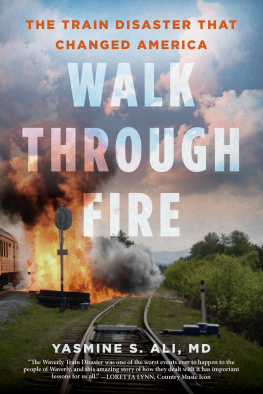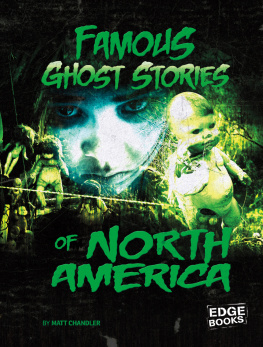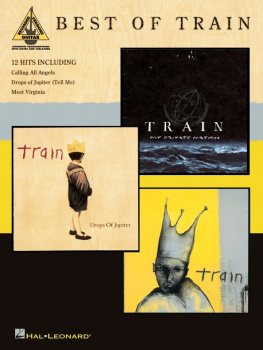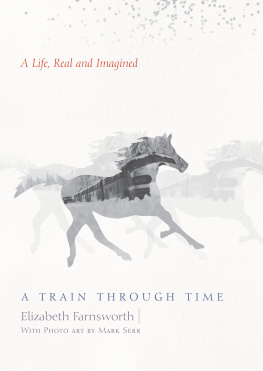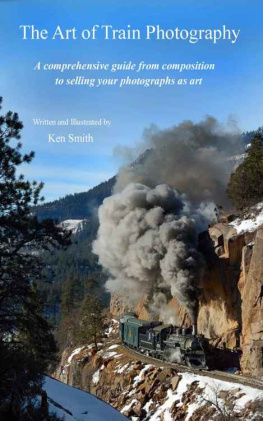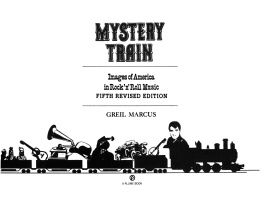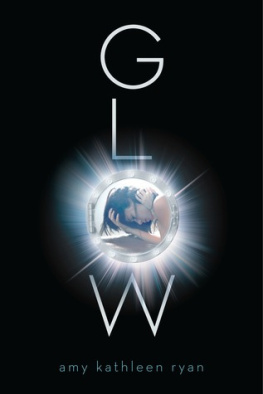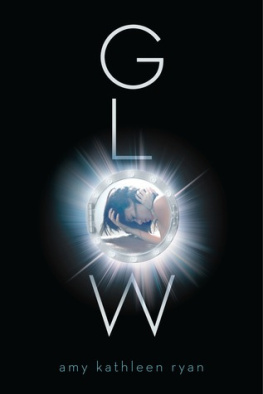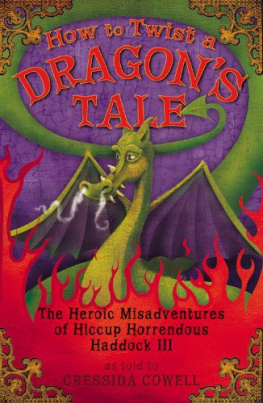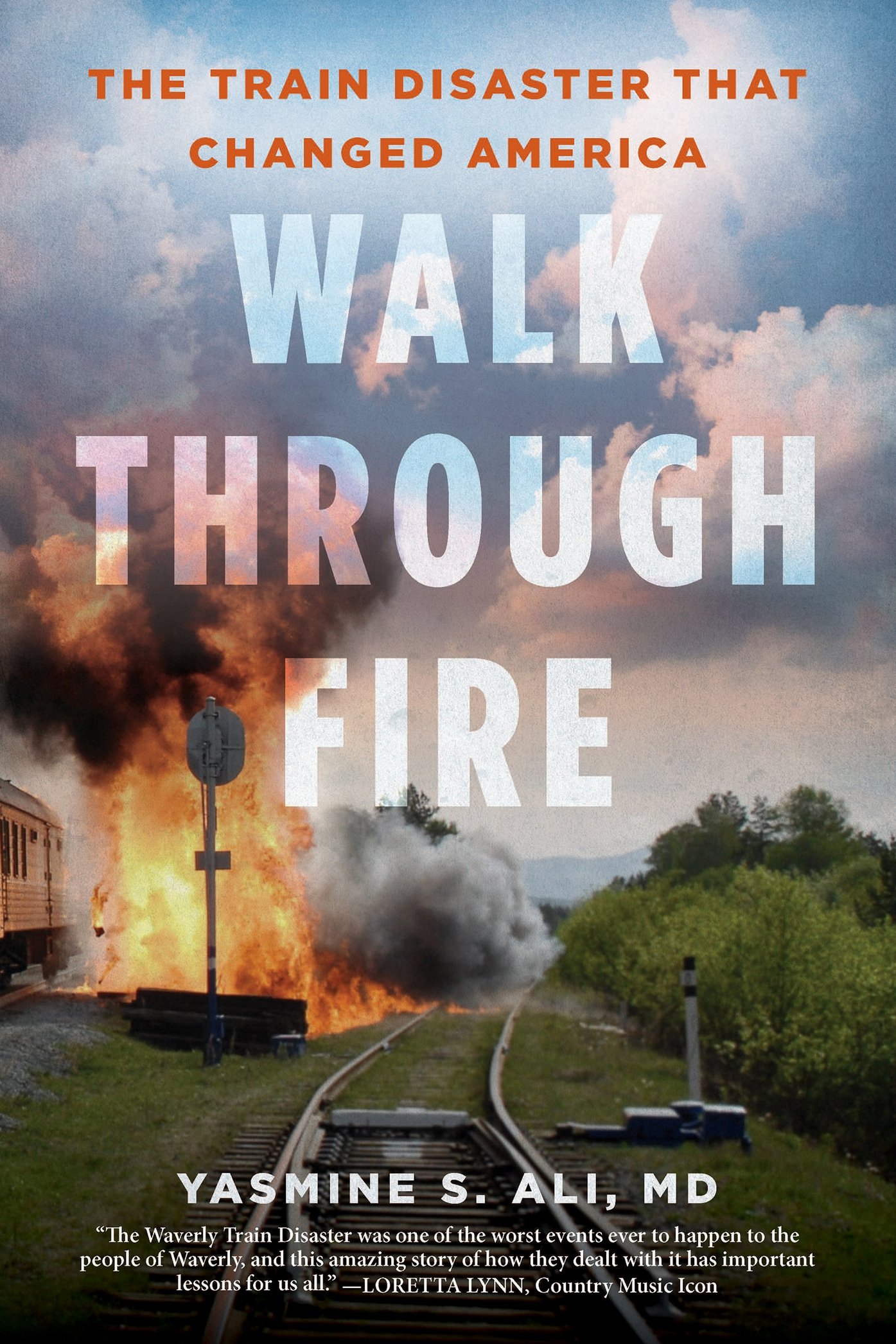Acknowledgments
S OMETIME IN THE SUMMER OF 2011, a tall, stately man with the nickname of Toad stopped me in the hallway of my parents clinic in Waverly, Tennessee. He initially stopped me just to say hello and see how I was doing, as I was down from Nashville to visit for the day. Then my father, Dr. Subhi Ali, came out of an exam room and saw us in the hallway, and called out to Mr. Smith: Toad, show her your hands. From that moment and the story that ensued (for Toad Smith is a marvelous storyteller), I became utterly fascinated, and then somewhat obsessed, by the tragedy that occurred in my hometown in February 1978, and the heroic roles played by people whom I had knownor thought I had knownall my life.
So thank you, Mr. Smith, for the story that started it all, for your countless hours spent in answering all my questions, for reviewing the manuscript, and for your constant encouragement throughout the entire process.
It must also be said that this book would never have been possible without the tireless efforts of Carolyn Sam Tucker, who, quite amazingly, took it upon herself to become my de facto research assistant, putting me in touch with nearly everyone I interviewed. Thank you, Sam, for supporting all my efforts on this book from the very beginningand indeed, all my efforts throughout my life. Thank you for always believing in me.
So many pieces from so many people had to fall into place for this project to come to fruition. To everyone who did me the profound honor of entrusting me with your stories, sharing some of the worst, most difficult memories of your lives and relying on me to get it right: the debt I owe you all can never be fully repaid. But if with this book you feel Ive done right by you, feel Ive done you proud, then that would be a start. In fact, as far as Im concerned, thats the only measure of success that really matters.
Thanks in particular:
To Buddy Frazier, for giving me the interview of a lifetime. For painstakingly preserving so many of the documents, photos, and artifacts related to the train disaster. For getting me what I needed even while overwhelmed with flood recovery, and for remaining supportive of my efforts on this project for so many years.
To Frank Craver, for not only sharing such a personal story but also for supplying me with so many important details and archival information, for giving me a tour of the accident site, for taking me through every available map and picture (more than once!), and for hanging in there through the long and arduous publishing process.
To Sue Craver, for also sharing some difficult memories with me and for supporting this entire project.
To Nancy Daniel, for being such a good friend to me and my family, for modeling the fundamentals of good nursing, and for letting me pick her brain on countless occasions, on this project and much more.
To Barbara Horner, for also being such an incredible friend to me and my family for so long, for sharing so many personal details and memories, for always being such an inspiration, and for helping me to understand a bygone era in nursing.
To Cheryl Allen, for providing an important piece of the puzzle that was this project at the beginning, for sharing so many details from memory, and for being there for my parents throughout their careers.
To Cooter Bowen, who has a memory like a trap, for sharing his own story and so many important details with me in a way that really brought part of the narrative to life.
To Julie Bowen Einerson, for putting me in touch with her father, Cooter, and for verifying some key details of Luff-Bowen history for me.
To Dr. Joe McClure, for so kindly allowing me to interview him in his own home, and for being so candid in sharing his memories of Waverly and of the disaster.
To Dr. Arthur W. Walker, may he rest in peace, for allowing me to interview him regarding his recollections of the disaster.
To Mrs. Jennie Lee Monroe, may she rest in peace, for adopting me as her granddaughter, for teaching me so much about life, and for sharing her and her mothers story the day of the disaster. Thanks also go to Wendell Monroe, who has always been there for me, and has been so supportive of all my projects, including this one.
To Zach Clayton, for taking an interest in and responding to my newsletters, which led to such a great interview with not only Zach himself, but also with Tim Barnett, with whom Zach put me in touch.
To Tim Barnett, for sharing some of the hardest memories of his entire life, and for helping me to see and understand so many of the human aspects of his father, Guy Barnett, for which the Chief was so beloved by his friends and colleagues. Tim also provided invaluable assistance in fact-checking the most technical aspects of the manuscript with regard to rail safety changes, and for that, too, I am most grateful.
To Andy Daniels, past president of the Waverly Exchange Club, for granting me permission to use many of the photos that appear in this book, and for being such a good friend to my family over the years.
To Leon Alligood, longtime Tennessee journalist and Middle Tennessee State University professor, for so generously sharing with me all his notes on the Waverly Train Disaster and its connection to the establishment of FEMA. In fact, it wasnt until I came across a line in a 2008 article by Mr. Alligood that I even realized the FEMA connection myself. I owe Mr. Alligood a tremendous debt of gratitude for his diligence.
To Bob Holliday, park manager of Johnsonville State Historic Park, for stopping to chat by happenstance while I was visiting the park in 2021, and then telling me the story of the Battle of Johnsonville. Mr. Holliday also made me aware of the existence of the excellent book by former park manager Jerry T. Wooten, which provides every detail of the battle and the role of Johnsonville. Additionally, Mr. Holliday was the first to mention to me the connection with Shermans March to the Sea. All of this informed and led me to further research for chapter 5, From the River to the Rail.
To Dr. Kelly Moore, my dear friend, for listening for soooo long to me and all my angst about this book and my authorial aspirations with other books, yet never wavering in her support and encouragement.
To Dr. Holly Urban, for looking at a very early draft and giving valuable feedback, and for staying so supportive of my writing.
To Vicki Harden and Jann Einfeld, for being such fantastic friends and cheerleaders for this and so many other projects, for agreeing to be part of my launch team, and for always being so authentically encouraging.
To Dr. Heather Fork of the Doctors Crossing, whose friendship I so cherish, for cheering me on with such gusto the whole timebut most importantly, for teaching me how to live in my True Self.
To Dr. Phill Cuculich, who appeared like a guardian angel at a time when I was deeply in doubt, and told me I must finish this book. It was just the kick in the pants I needed, at just the time I needed it. I will be forever grateful.
To my close friends Janell Pendergrass, Ben Papa, and Brad Bullock, for keeping the excitement alive for this project from the very beginning and for adding such richness to my life in so many ways and for so many yearsI am the lucky one.
To Dr. Stacy Davis, for her constant support, enthusiasm, and encouragementbefore, during, and after the writing of this book.
To Missy Rodriguez Brower, for reminding me of the importance of having a room of ones ownand helping me get it.

